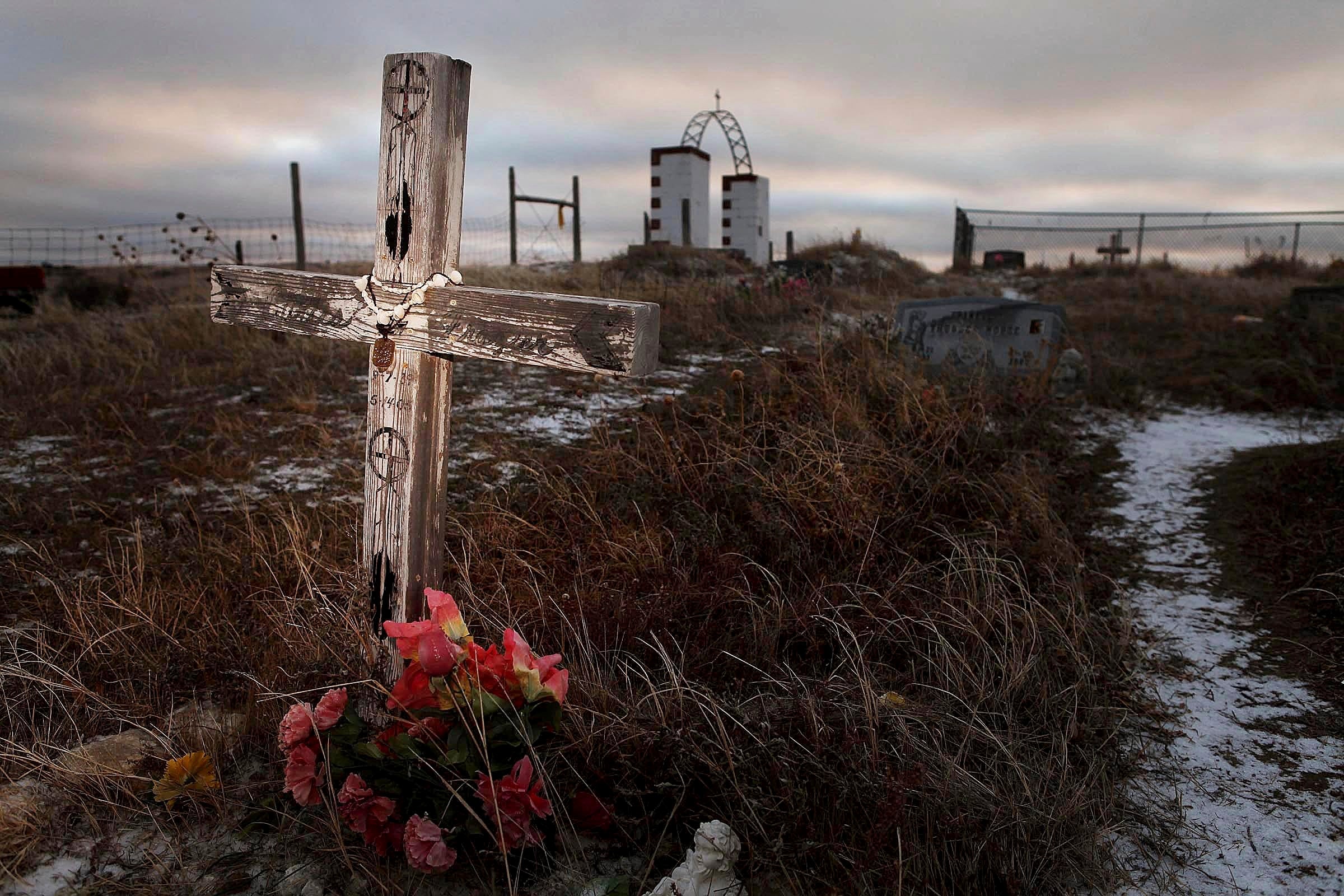South Dakota tribes buy land near Wounded Knee massacre site
Two American Indian tribes in South Dakota have agreed to purchase 40 acres of land near the Wounded Knee National Historic Landmark on the Pine Ridge Indian Reservation

Two American Indian tribes in South Dakota have agreed to purchase 40 acres of land near the Wounded Knee National Historic Landmark on the Pine Ridge Indian Reservation.
The Oglala Sioux tribe will pay $255,000 and the Cheyenne River Sioux tribe will pay $245,000 for the site, and agree to petition the U.S. Department of the Interior to take the land into trust on behalf of both tribes, Indian Country Today reported. The title to the land will be held in the name of the Oglala Sioux tribe.
The agreement ends a decades-long dispute over land that is the site of the Wounded Knee massacre of 1890 in which hundreds of Lakota men, women and children were killed by U.S. soldiers in an attempt to suppress the Ghost Dance, a Lakota religious movement. Victims were buried in a mass grave in a nearby Catholic cemetery.
Jeanette Czywczynski became sole owner of the property after her husband, James, died in 2019. James Czywczynski purchased the property in 1968.
The Czywczynski family operated a trading post and museum there until 1973, when American Indian Movement protesters occupied the site, destroying both the post and Czywczynski’s home.
The 71-day standoff that left two tribal members dead and a federal agent seriously wounded led to heightened awareness about Native American struggles and propelled a wider protest movement.
The family moved away from the area and put the land up for sale, asking $3.9 million for the 40-acre parcel nearest the massacre site. The land, including an additional adjacent 40-acre plot, had been assessed at $14,000.
In 2013, film star Johnny Depp announced a plan to buy the property and donate it to the Oglala Sioux tribe. Depp, who played the role of Tonto in a remake of the film, “The Lone Ranger,” was criticized for trying to capitalize on the film making unsubstantiated claims of having Native American ancestry. Depp did not follow through on the purchase.
Bookmark popover
Removed from bookmarks